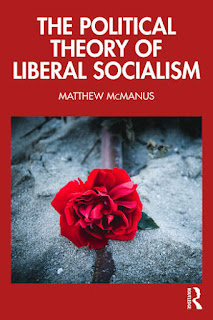New essay by Jürgen Habermas in "Süddeutsche Zeitung (March 22, 2025):
"Für Europa" [paywall]
Zu Donald Trump, dem geopolitischen Umbruch und der Übertölpelung unseres Kontinents. Zugleich eine Warnung vor der Rhetorik der Verfeindung und ein Plädoyer für die Freundschaft mit unseren Nachbarn
dts-nachrichtenagentur.de - "Habermas rät zu militärischer Stärkung der EU"
English version: “Europe Must Go Ahead with its Integration and Self-Defense” (Reset DOC, 03-04-2025, open access)
Excerpt:
Nicht als hätten die maßgebenden nationalen Politiker des Westens – und im weiteren Sinne der G-7-Länder – je in ihren politischen Perspektiven nahtlos übereingestimmt; aber geteilt haben sie stets das gemeinsame Hintergrundverständnis ihrer Zugehörigkeit zu „dem“ Westen unter Führung der USA. Diese politische Größe ist mit dem jüngsten Regierungsantritt von Donald Trump und dem damit in Gang gekommenen Systemwechsel der USA zerfallen, auch wenn formell das Schicksal der Nato einstweilen noch eine offene Frage ist. Aus europäischer Sicht hat dieser Epochenbruch tiefgreifende Konsequenzen – sowohl für den weiteren Verlauf und ein mögliches Ende des Krieges in der Ukraine, wie für die Notwendigkeit, die Bereitschaft und die Fähigkeit der Europäischen Union, auf die neue Situation eine rettende Antwort zu finden. Andernfalls gerät auch Europa in den Strudel der absteigenden Supermacht. (....)
Ganz unabhängig vom Erfolg scheint Trump mit seiner Hinwendung zu Putin anzuerkennen, dass die USA trotz ihres wirtschaftlichen Übergewichts die weltweite Vorherrschaft einer Supermacht verloren, jedenfalls den politischen Anspruch eines Hegemons aufgegeben haben. Der Ukrainekrieg hat die geopolitischen Kräfteverschiebungen nur beschleunigt – den unverkennbar globalen Aufstieg Chinas und die längerfristigen Erfolge des ehrgeizigen Seidenstraßenprojekts einer strategisch klugen chinesischen Regierung, sodann die ehrgeizigen Ansprüche des konkurrierenden Indien und schließlich die wachsenden weltpolitischen Ansprüche von Mittelmächten wie Brasilien, Südafrika, Saudi-Arabien und anderen Ländern. In ähnlicher Weise sprunghaft ist der südostasiatische Raum in Bewegung. Nicht zufällig ist im vergangenen Jahrzehnt die Literatur zur Neuordnung einer multipolaren Welt auffällig schnell gewachsen. Diese Veränderung der geopolitischen Lage, die durch die Spaltung des Westens nur noch eine Dramatisierung erfahren hat, rückt die aktuelle Aufrüstung der Bundesrepublik in eine ganz andere Perspektive, als uns die höchst spekulativen Annahmen über eine aktuelle Bedrohung der EU durch Russland suggerieren.
Aus meiner Sicht hat sich die Stimmung in unserem Lande – auch forciert von einer einseitigen politischen Meinungsbildung – in den Sog einer gegenseitigen Verfeindung mit dem Aggressor hineinziehen lassen. Selbstverständlich ist der letzte Beschluss des abgewählten Bundestages auch ein unverkennbares Signal der Entschlossenheit, die Ukraine nicht zum Opfer eines über ihre Köpfe hinweg beschlossenen Deals werden zu lassen. Aber unsere auf längere Fristen geplante Aufrüstung dient vor allem einem anderen Ziel: Die Mitgliedsländer der Europäischen Union müssen ihre militärischen Kräfte stärken und bündeln, weil sie sonst in einer geopolitisch in Bewegung geratenen und auseinanderbrechenden Welt politisch nicht mehr zählen. Nur als eine selbständig politisch handlungsfähige Union können die europäischen Länder ihr gemeinsames weltwirtschaftliches Gewicht auch für ihre normativen Überzeugungen und Interessen wirksam zur Geltung bringen. (....)
Comments:
* Rüdiger Suchsland (Telepolis)
* Björn Schumacher (Junge Freiheit)
* Thomas Schmid (Die Welt)
* Martin Schulze Wessel (Der Spiegel)
* Thomas Ribi (Neue Zürcher Zeitung)
* Jan Opielka (Berliner Zeitung)
* Hélène Miard-Delacroix (Deutschlandfunk Kultur)
* Michael Hesse (Frankfurter Rundschau)
* Norbert Frei (Süddeutsche Zeitung)
* Christian Geyer (Frankfurter Allgemeine Zeitung)





